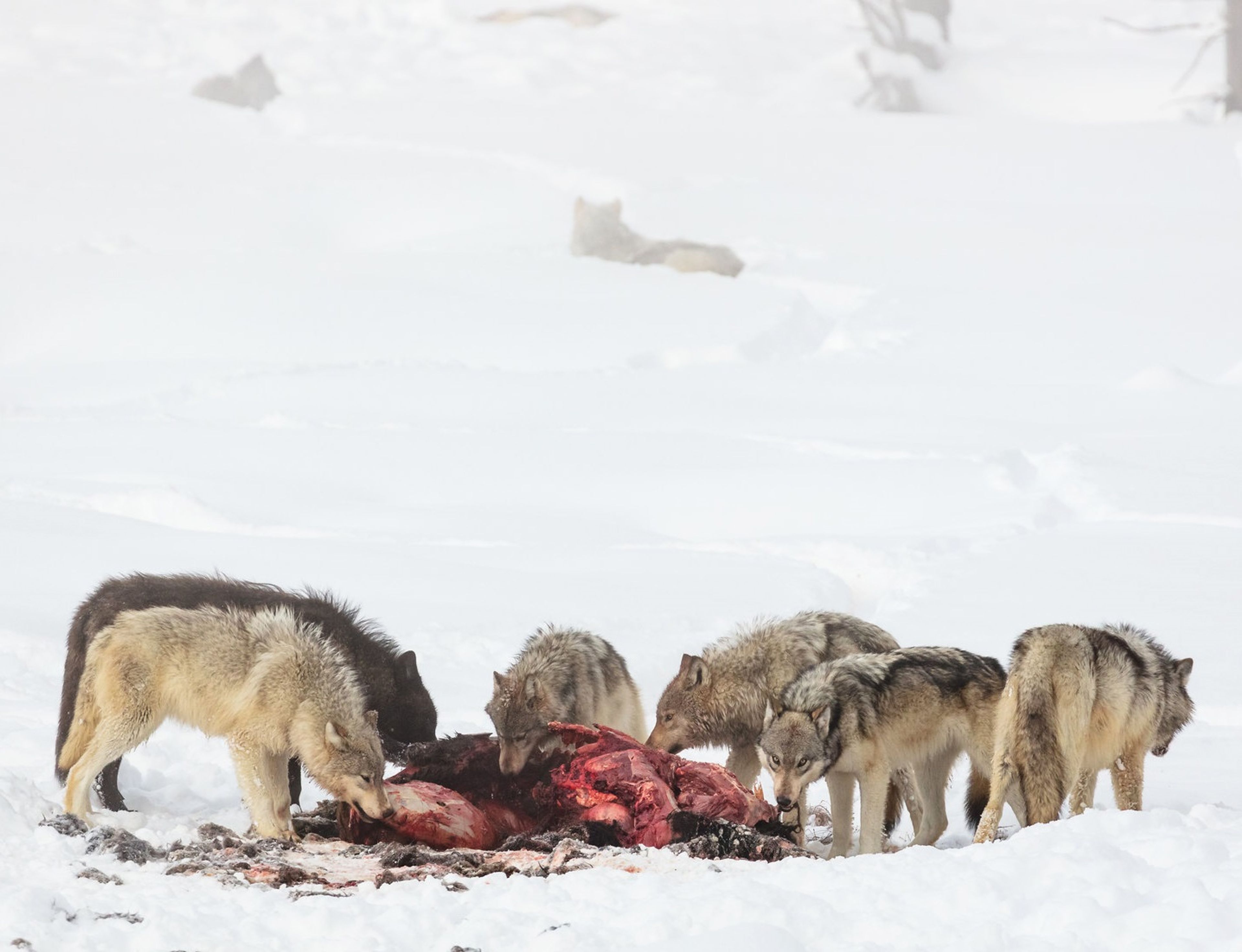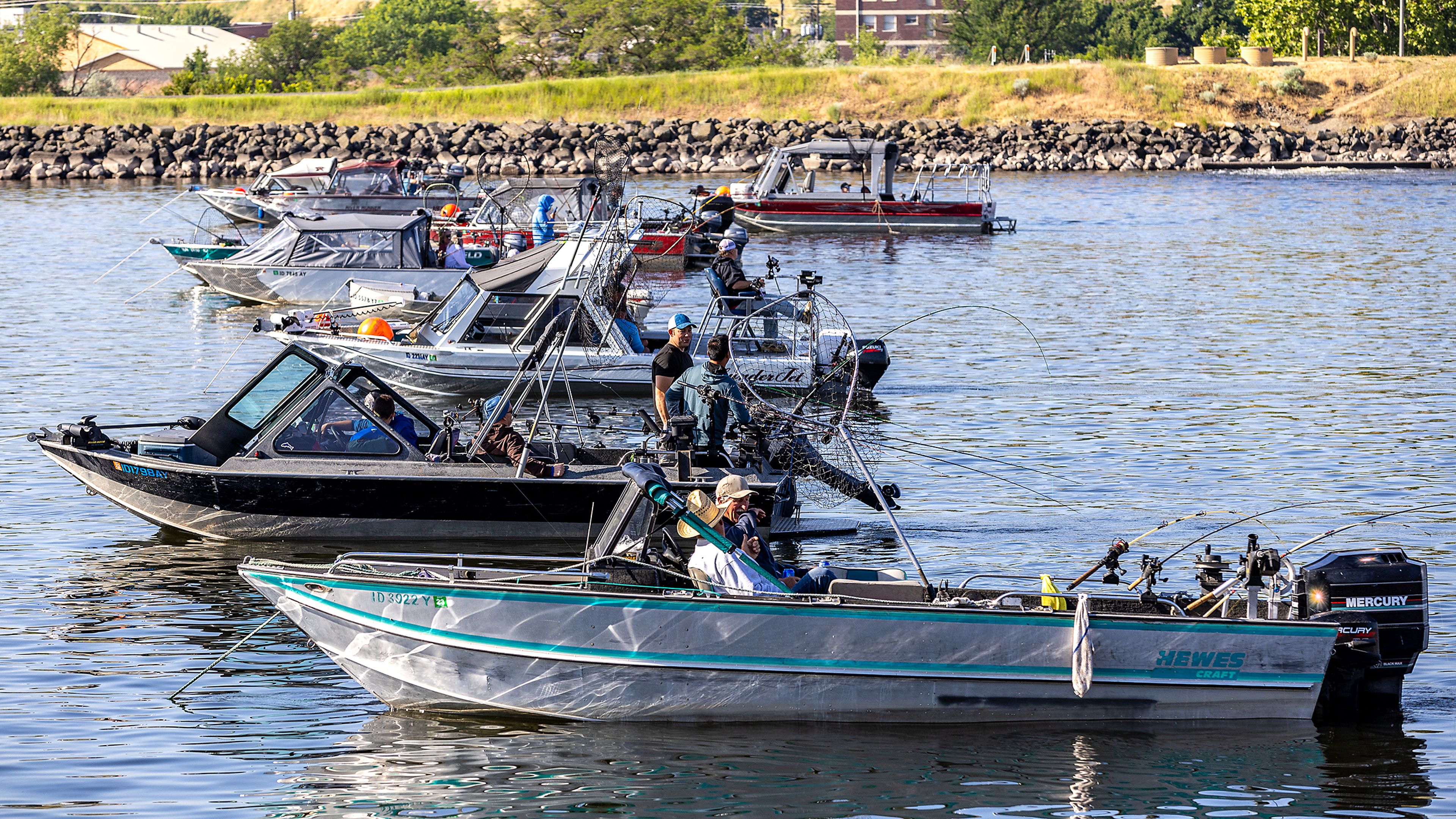Angling for a spot on Drano Lake
Tribal fishing scaffolds at popular fishing areas have nontribal anglers up in arms
WHITE SALMON - For 60 of his 80 years, Vern Musgrove has been fishing at Drano Lake, a backwater off the Bonneville Reservoir where the Little White Salmon River flows into the Columbia River.
The Yakima angler's Drano days, though, may be coming to an end. He gave up boat-fishing after a 2005 accident left him with a bad back - "I can't pull anchor any more," he says - and limited him to a couple of easily accessible spots on the lake's western shore.
Now both of those spots, and several of the lake's other areas readily available to bank anglers - are occupied by wooden platforms, built over the last two months by Yakama tribal anglers. One of those sites is the western-end fishing area the locals refer to by names like "Social Security Beach" and "Medicare Beach" for its popularity with older fishermen, some of them with disabilities, who struggle to reach the bank at some of the lake's steeper, more rugged areas. Officials with the Little White Salmon Fish Hatchery have planned for months to put in a ramp so wheelchair-bound anglers could fish from the beach.
Only now there are two platforms in front of it.
"People are just up in arms," said Dennis Evans of Toppenish. "There's scaffolds right on the beach and in the water in front of the beach, and you can't fish there because you're casting out between them."
That may become much more of an issue over the next six weeks or so if Drano fills up with the steelhead-fishing crowd it typically does in August and early September.
"There's been fishermen that have called and asked why haven't you taken them down? They call and they're very, very upset. It's a serious thing," said Speros Doulos, complex manager of the Columbia River Gorge National Fish Hatchery Complex, which includes the Little White Salmon, Willard, Spring Creek and Carson federally run fish hatcheries.
"I'm really concerned for that night fishery during the steelhead season. If you've got tribal fishermen doing their net fishery and you've got the intense night steelhead fishery ... it's really busy. And on top of that, you've got guys drinking beer. Given the concerns we've heard from sport anglers already, I'm concerned about the potential for conflict."
♦ ♦ ♦ ♦ ♦
For years the Drano bank and boat anglers fishing in the same areas has been a simmering stew of resentment that has occasionally boiled over until emergency regulations instituted in 2009 (and since made permanent) by the Washington Department of Fish and Wildlife mandated some distance between them.
"Seemed like the sheriff was called in every day to stop a fight," Evans said. "Guys throwing lead shot at the boats ... they designed razor-blade sinkers to cut (boaters') lines to discourage them (from cutting) their line."
The animosity went both ways. "The boat fishermen will get in there and if you cast too close to their boats, they'll get mad," Musgrove said. "One guy pulled a gun out and said, 'You do that again, I'm gonna shoot you.' "
Skamania County Sheriff Dave Brown said he hopes his officers aren't in line for more incidents like that with the busiest part of the steelhead summer coming up.
"The scaffolding issue obviously creates a whole new potential for problems," Brown said. "And as the steelhead run starts to run in over the next week or two, we're probably going to have some issues out there and be dispatching units to deal with them."
Brown said the potential for problems would have been diminished had the tribal plan been made public early on, "if the tribe, the fish and wildlife people, the sportsmen and the county could have gotten together for a little bit of education as to what's going out there."
Such a meeting might also have reminded nontribal anglers that the Yakamas are within their treaty rights to fish in any of their traditional fishing areas, including the Little White Salmon.
♦ ♦ ♦ ♦ ♦
Yakama tribal fishers have long had platforms on the Wind River and the Icicle River in areas typically upriver from the sport fishery boundaries, below each of the two rivers' hatcheries. There is also platform fishing on the Klickitat River, and because the tribal fishing areas there overlap with the sport fishery, state and tribal officials have typically arranged for alternating season schedules between the two groups.
The alternating-fishery strategy is also used at Drano Lake during the spring and fall chinook fisheries, closing on Tuesday nights and Wednesdays to make room for tribal gillnet fishers.
Yakama tribal officials have been considering a platform/hook-and-line gear fishery at Drano for several years, and let state and federal officials know that. But on May 31, when the Yakama Nation's Fish, Wildlife and Law and Order (FWLO) committee made it official, its suddenness still came as a surprise.
Over the next two months, somewhere between 14 and 20 scaffolds and smaller tripod-shaped tribal fishing structures have gone up at Drano. But only recently, with the busiest part of the steelhead summer coming up, have many anglers even become aware of the new reality at the lake.
"Both the Yakama tribe and Washington Fish and Wildlife have a mutual interest in making sure we maintain a balanced opportunity for both the tribal and sport fishermen. That's a mutual objective," said Guy Norman, the WDFW's southwest regional director, who met last week with Virgil Lewis, tribal FWLO chairman on the Drano situation.
"Obviously we're interested in maintaining some good bank-fishing opportunities," Norman said. "I think there's a mutual desire to avoid conflicts in the area, so I think when we finish our discussions, we'll be able to reach some mutually agreed-upon actions."
♦ ♦ ♦ ♦ ♦
Whether nontribal bank anglers resent the platforms restricting access to their own traditional fishing holes seems inevitable. But Doulos, Brown and Norman are all hoping for amicable coexistence.
Doulos said Yakama fishers had apparently intended to build a third platform at "Social Security Beach," right where the planned-for disabled-access ramp was to terminate. He notified tribal officials of that situation, and as of Sunday no work on a third platform had begun.
"I'm confident the Yakama Nation is going to meet us halfway on that one," Doulos said.
But will nontribal anglers do the same thing?
"The bank fishermen, they don't have that many places to go," Musgrove said. "Unless (tribal officials) let us fish off the platforms."
Will they? Multiple calls to Lewis by the Herald-Republic were not returned. Norman, asked if he and Lewis had discussed that possibility, was very careful and tentative in his response.
"I think it's a gray area," Norman said. "I think the main message is ... sort of this respect for somebody's property, the fact that they've invested some money and effort into building those (scaffolds), and trying to make sure we all get along out there."
Brown, the Skamania sheriff, said the Drano situation "creates a whole new arena." The land around the lake, on which the scaffolds are built, is owned and managed by the federal government. The lake itself is jointly managed by federal and state officials.
So, legally, are those scaffolds somebody's property?
"It's public land out there around those scaffolds. What prohibits anybody from using the scaffolds?" mused Brown. "If you can stand on a bank, you can stand on a scaffold or anything else out there.
"I'll be interested in seeing what happens when people start doing that."








